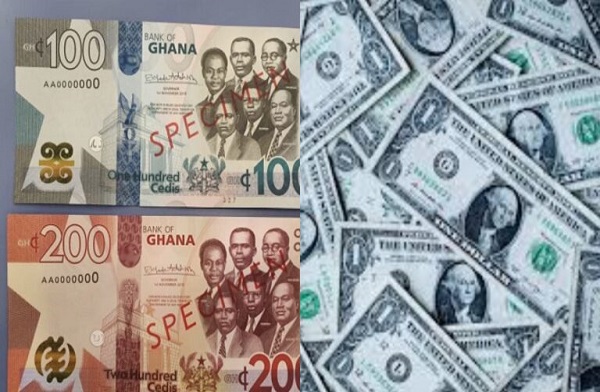The Institute for Economic Affairs (IEA) has urged the Bank of Ghana to progressively build its reserves to at least six months of import cover to strengthen the exchange rate.
According to the think tank, that’s the major step in avoiding the perennial depreciation of the cedi.
It pointed out that the additional reserves could be derived from natural resources through increased ownership and value addition.
In an analysis ahead of the December elections, the IEA said the exchange rate management should be improved by implementing measures to address the perennial foreign exchange supply-demand imbalance through some of the structural reforms.
This includes better management of the exchange rate through prudent fiscal and monetary policies.
Infrastructure remains inadequate, poor
On infrastructure, it said Ghana’s infrastructure remains inadequate and poor, belying its status as a middle-income country.
Urban roads, highways and rural roads are all poor, while railways for transportation of people and goods are virtually nonexistent. Port facilities are also inadequate and below international standards.
The IEA expressed concern that the government budgets consistently make inadequate allocations to infrastructure, with disproportionate shares going to non-productive recurrent expenditure.
Again, inadequate and poor infrastructure has increased the cost of doing business and economic inefficiencies and has been a drag on economic growth.
On recommendation, it stated that the budgetary allocations for infrastructure should be substantially increased, while at the same time reducing recurrent expenditure.
At the same time, the private sector should be involved in infrastructure financing through Public-Private Partnerships (PPP) initiatives to reduce the burden on the budget, whilst tThe Ghana Infrastructure Investment Fund (GIIF) should be regularly funded to ensure dedicated funding for infrastructure.
Also, an additional Fiscal Rule should be introduced in the Fiscal Responsibility Act to channel all government loans to capital investment to ensure that enough returns are generated to facilitate future repayments.
Latest Stories
-
Saminu Abdul Rasheed smashes national record again with 9.84s sprint in Georgia
2 hours -
Blekusu Coastal project: We’re reclaiming our coastlines – Housing Minister
5 hours -
Pricey plantains push Ghana’s market sellers to diversify
5 hours -
Full list: NPP delegates approve 54 reform motions, reject proposals on youth age, election supervision
5 hours -
WAFCON 2024: Cynthia made it easy – Chantelle hails goalkeeper after penalty saves
5 hours -
Cyber Security Authority boss suspended over use of military bodyguard
6 hours -
WAFCON 2024: I want to make history – Grace Asantewaa dreams of lifting the trophy
6 hours -
Afenyo-Markin accuses NDC of rebranding and claiming credit for NPP projects
6 hours -
2024 WAFCON: Grace Asantewa shines as Black Queens reach semis
6 hours -
WAFCON 2024: Ghana beat Algeria 4-2 on penalties to book semi-final spot for the first time since 2016
6 hours -
NPP Delegates reject motion to shift polling station selection oversight to regional committees
6 hours -
2024 WAFCON: Black Queens set up semifinal clash with hosts Morocco
6 hours -
Dr. Amuasi champions healthy sustainable socio-ecological systems thinking in Lancet One Health Commission Report
6 hours -
Without unity, we’re just individuals with ambition – Afenyo-Markin
6 hours -
Rebecca Tweneboah Darko: Scattered thoughts; Scary times
6 hours

